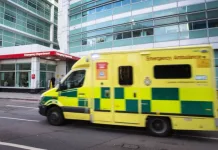
Many junior doctors have vowed to leave Britain to move overseas because of the proposed changes
In what has been seen as the most bitter, destabilising conflict the NHS has ever seen, the dispute that arose over 300 days ago when the government proposed the junior doctor’s talks have seen a fresh “deal” agreed.
The breakthrough came after 10 days of “intensive” talks called in a bid to resolve the row, which had been growing increasingly bitter.
The views of NHS Employers and the Government were represented by Sir David Dalton, who was involved in the original talks and heads up Salford Royal NHS Foundation Trust, while the BMA was represented by Dr Johann Malawana.
The negotiations came after five rounds of industrial action, which saw junior doctors in England walk out of UK hospitals. They also stopped providing emergency care for the first time in NHS history during their most recent walkout, which went on for two days at the end of April.
Now the new offer is now to be put to a referendum of 55,000 BMA members, who will vote on whether to accept it.
Dr Johann Malawana, BMA junior doctor committee chair, said: “Junior doctors have always wanted to agree a safe and fair contract, one that recognises and values the contribution junior doctors make to the NHS, addresses the recruitment and retention crisis in parts of the NHS and provides the basis for delivering a world-class health service.”
And the BMA have agreed to lift the threat of further industrial action – after leaked documents showed they had discussed a ‘strike of no return’ – where medics would simply not return to the wards until a satisfactory deal was agreed.
Some elements of the new contract, if approved in the referendum, will be implemented in August this year and all junior doctors will move on to the agreed new terms between October 2016 and August 2017.
Under the deal, Saturdays and Sundays will be paid at a normal rate between 9am and 9pm, with extra pay for overnight work seven days a week.
The taxpayer-funded NHS, established in 1948, is one of Britain’s most respected institutions, providing medical care largely free at the point of delivery.
The previously proposed changes to junior doctors’ contracts has faced harsh criticism warning that would leave services and doctors dangerously overstretched.
Many junior doctors had warned that they would leave Britain to move overseas because of the proposed changes in 2012 – this saw the first-ever all-out strike in NHS history.














